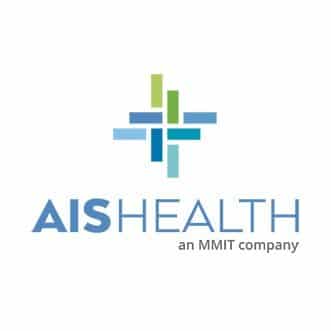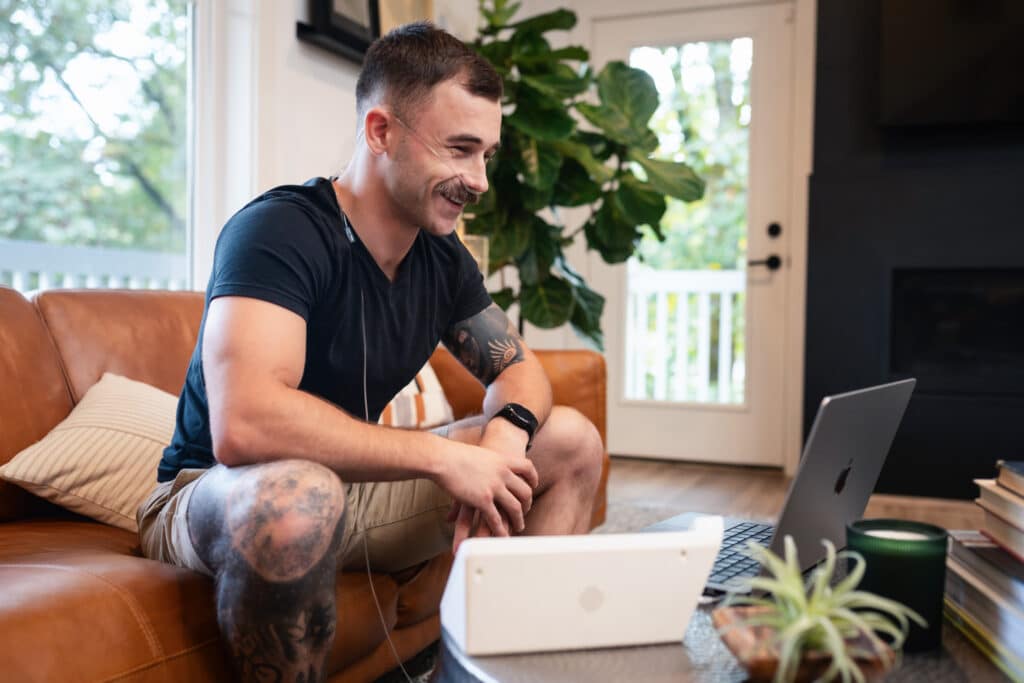By Richard Scott (Published by AIS Health on May 24, 2024)
Amid an ongoing mental health crisis that has seen a near 40% increase in patients grappling with mental health conditions since 2020, Centene Corp.’s WellCare of Kentucky launched a pilot program to address two conditions—panic attacks and post-traumatic stress disorder (PTSD)—that are often overlooked.
Working with digital therapeutics company Freespira, Inc., the pilot program takes an innovative approach to managing conditions at home with supportive technology and personalized coaching. AIS Health, a division of MMIT, connected with leaders of the two organizations, Timothy Houchin, M.D., a board-certified adult, child and forensic psychiatrist and senior medical director for WellCare Kentucky, and Joseph Perekupka, CEO of Freespira, to discuss the collaboration and learn about the early outcomes.
Editor’s note: The interview has been edited for length and clarity.
AIS Health: Why did you focus on mental health in the Medicaid population, and why now?
Houchin: People are suffering. Many have been suffering for many years without a proper diagnosis because PTSD was not on their treatment provider’s radar.
One reason for this is that PTSD is often misunderstood as something that only affects military veterans. Many patients and clinicians alike will be quick to recognize flashbacks, nightmares, avoidance of reminders of trauma, social isolation, depression and suicidal thoughts in veterans who have PTSD. Unfortunately, many clinicians fail to recognize these same PTSD symptoms in non-veteran patients. Thus, many civilian patients may be misdiagnosed for years before someone figures out it was PTSD all along.
We see this every day with people that have been in traumatic car accidents, have experienced sexual trauma, and those that have suffered childhood abuse.
Now, as a country, we are playing catch-up as clinicians and the public have increased [their] understanding of PTSD.
AIS Health: Why is the program specifically targeting panic disorder and PTSD?
Houchin: WellCare Medicaid is the first to bring this approach to Kentucky because it is an evidence-based, non-medicinal treatment for panic disorder and PTSD. The FDA gave clearance for Freespira for panic disorders in 2013 and for PTSD in 2018.
AIS Health: How did the agreement to run the pilot program with WellCare of Kentucky come about?
Perekupka: Freespira had successfully engaged other managed Medicaid health plans and demonstrated successful member engagement with significant clinical outcomes and adherence rates. Based on this success, Freespira launched a program focused on select targeted MCOs.
AIS Health: How many members do you intend to treat with the at-home service?
Perekupka: Dr. Houchin was the driving force behind the approval of the Freespira pilot program, recognizing the increased need for evidence-based PTSD treatments in the state. Given his extensive expertise in understanding and treating PTSD, he recognized the value of Freespira as a medication-free treatment and a tool that teaches patients to regulate their breathing, which improves the way they manage their PTSD symptoms. This skill helps the patient manage their symptoms as they work through psychotherapy.
Aware of the challenges of introducing new treatments for a health plan, he believed the pilot program would provide Freespira the opportunity to prove its model with a smaller subset of WellCare members. WellCare accomplished this by working closely with a designated medical practice, New Vista, which specializes in integrated mental and physical health care in the state of Kentucky.
Houchin: Our analytics show that 12% of the population could benefit from Freespira. About 65% of the 12% would be impactable.
AIS Health: How does the at-home service work? Can you take me through the model design, from setup to treatment to follow-up care, if appropriate?
Perekupka: Freespira combines a proven medical treatment with the power of technology and the human element that empowers the patient to take an active role in their own mental health care.
The system includes a proprietary sensor, nasal sampling cannula, and connected tablet with proprietary software. The sensor measures respiration rate and exhaled CO2 levels in real time. Software graphically displays physiological parameters and guides patients to regulate exhaled C02 levels and respiration rate. The twice-daily treatment trains patients to normalize their breathing pattern which eliminates or reduces panic and PTSD symptoms.
Freespira treatment works with the patient care team to identify an appropriate training date that fits their schedule. The Freespira system is then sent to the patient’s home and arrives within 48 hours of their training date. Each patient is paired with a dedicated coach for the entire treatment protocol. On day one the Freespira coach works with the patient virtually on a secure video call to open the box, set up the Freespira system and conduct their first treatment session. The patient then conducts the 17-minute treatment session twice daily on their own for 28 days. They have their weekly virtual meetings with their coach where the coach reviews the patient’s progress. In addition, patients can reach out to their coach between weekly meetings as needed. At the end of the treatment, the patient returns the system to Freespira using the provided return shipping label. The patient also receives the Freespira tones app that they can use to continue practicing their breathing skills. Post-treatment, patients have learned a self management tool that delivers long-lasting benefits.
AIS Health: What type of patient outcomes have you seen in other programs or pilots that inspired your decision to make the arrangement happen with Freespira?
Houchin: We have found that many people with PTSD are unable to undergo trauma-focused psychotherapy because their symptoms are so badly triggered by discussing what happened to them even when they are working with a trained psychotherapist. Freespira does not require revisiting the trauma. Rather, it focuses on helping patients regulate their breathing in a way that decreases their PTSD symptoms. So Freespira has the ability to effectively address PTSD symptoms even before the member is ready to initiate trauma-focused psychotherapy.
AIS Health: What type of patient outcomes have you seen in other programs or pilots?
Perekupka: Freespira has treated over 5,000 patients in the U.S. and has demonstrated some of the most consistent clinical results reported in mental health across all lines of business, including the VA and Medicaid populations. Freespira has incorporated the concept of measurement-based care into its treatment from the beginning by using validated patient self-assessment tools to measure symptom severity and change in symptom baseline throughout the 28-day treatment. These measurement tools allow Freespira to report objective outcomes post-treatment to clients.
We also work with other Medicaid plans and we have delivered the following outcomes:
- Panic disorder: 65% of patients achieved clinical response.
- PTSD: 64% of patients achieved clinical response.
- Adherence: Patients completed on average 67% of the protocol-specified treatment sessions.
AIS Health: If the pilot program proves successful, what might be the next steps for WellCare in Kentucky?
Houchin: At WellCare, we have about 450,000 Medicaid members in Kentucky. We want to identify and help those in need of the appropriate treatment. We are definitely seeing positive results during this pilot phase, which is encouraging. We will then begin to examine how we could effectively roll this out across the state as we accumulate more data.



